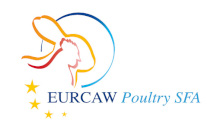Document type : Written answer to question n° 25413 published in the Journal Officiel du Sénat
Authors: Question: Hugues Saury (Loiret - Les Républicains). Answer: French Ministry of Agriculture and Food
Question: Mr Hugues Saury asked the Minister for Agriculture and Food about the penalties for abattoirs whose practices do not comply with the law and are incompatible with respect for animal welfare. While the legislative and regulatory arsenal has been considerably strengthened in recent years and regular checks seem to attest to the compliance of the work of abattoir professionals, a video from the L214 association filmed in an establishment in the Saône-et-Loire region has exposed some seriously bad practices. In addition to the slow agony of animals put to death by ritual slaughter without stunning, there was also the slaughter of pregnant females beyond the authorised term. While awaiting the conclusions of the enquiry that has been ordered, he asked whether the Government plans to regularise the system of sanctions imposed when such procedures are observed, but also to clarify practices and impose the stunning of animals before their slaughter.
Answer: Videos filmed in abattoirs and regularly made public by associations are always particularly sensitive for the public, as they concern a place where animals are killed in order for their products to enter the food chain. Furthermore, the claims made in this video, which were repeated without verification by the media, condemn a situation that was not observed to exist in the course of the inspection and internal investigation carried out at the request of the Minister of Agriculture. The images from the video broadcast by L214 from an abattoir in Saône-et-Loire were analysed by the team from the French Ministry of Agriculture and Food that specialises in this area. Furthermore, the internal investigation showed that the activist who infiltrated the veterinary services team was in fact given professional support over a period of several weeks on taking up his post, including provision of theoretical materials, on-site teaching and pair work. With regard to the slaughter of pregnant females, there are no regulations prohibiting this practice. Only the transport of pregnant females beyond 90% of the gestation period is currently prohibited, as these animals are considered non-transportable for welfare reasons. The images shown in this video do not allow us to date with certainty the state of development of the foetuses. In any case, veterinary inspection officers in abattoirs are competent to identify such non-compliance and, if necessary, to impose the necessary measures on farmers. The European regulations governing animal protection will be reviewed in 2023. Furthermore, with regard to slaughter without stunning, the minister reminds you that, while the stunning of animals is mandatory before slaughter or killing, Council Regulation (EC) No 1099/2009 of 24 September 2009 provides for a derogation when this practice is not compatible with ritual requirements relating to the free exercise of religion. To this end, Decree No. 2011-2006 of 28 December 2011 sets out the conditions for issuing authorisations to waive the obligation to stun animals. In particular, slaughter without stunning must be carried out in an approved abattoir, after the animal has been immobilised and in compliance with all measures relating to animal welfare. Last, the Minister of Agriculture launched a dedicated "abattoir plan" at the beginning of July 2021, the actions of which have already begun. The national abattoir inspection force is operational and the first coordinated inspection was carried out in October. The Minister for Agriculture also reiterated his support for abattoirs and inspection services that carry out their work correctly, which, while it is admittedly difficult, remains essential to the supply of meat products to the public and to the economic vitality of rural areas. This is the case for the Cuiseaux abattoir.




